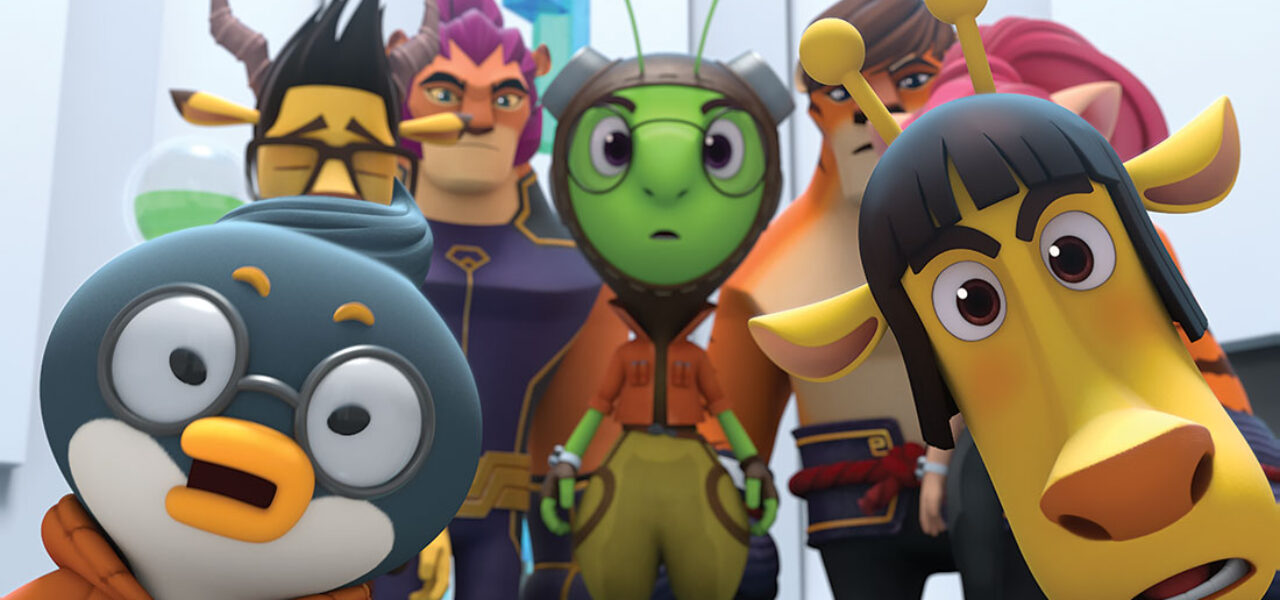
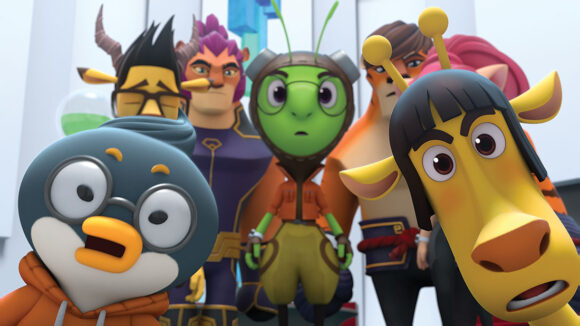
Sidus Animation Teases Bold New Slate Of Projects, Starting With ‘Running Man: Revengers’
With each new incarnation, Running Man finds a new audience. Starting off as a hit Korean variety show in which celebrities compete in various physical challenges, it spawned spin-off editions in China and Vietnam before being adapted as an animated series for kids. That too proved successful, airing on seven channels in South Korea, as well as internationally on Cartoon Network in the Asia Pacific region.
Which brings us to Running Man: Revengers, a brand-new cg feature based on the animated series. Set on the eve of the Running Man challenge, the film pits the animal stars of the animated series in a new contest to find the magical Super Belt. It is animated (like the series) by Sidus Animation, which is the animation production arm of Locus Corporation, one of Korea’s largest content producers.
Running Man: Revengers is the second feature from Sidus. The studio broke out last year with its debut feature Red Shoes and the Seven Dwarfs, a fairy tale spoof with a stellar voice cast led by Chloë Grace Moretz. The film performed strongly overseas, topping the Spanish box office for two weeks and securing distribution in over 123 territories. On Apple TV, it reached the number one slot in the kids and family section.
As Sidus presents Running Man: Revengers at the American Film Market this week, Cartoon Brew caught up with the studio’s Head of Content Business Hyunjee Heather Lim and Content Business Manager Fred Stiehl. They spoke to us about their new film, future projects, ambitions, and assets as a company combining deep knowledge of the Korean market with broad experience of global distribution.
Cartoon Brew: How does Running Man: Revengers build on the animated series, and what does it do that’s new?
Sidus Animation: In the tv series, the Running Man competition is a series of games which was founded as a peaceful alternative to different tribes’ constant warring over resources. In order to streamline some of the more in-depth subplots of this worldview and to make Running Man: Revengers accessible to viewers unfamiliar with the tv series, Running Man: Revengers takes place on the eve of the competition: the characters do anything and everything to get the legendary Super Belt, which can make its wearer the absolute ruler of the world and grant them their wishes.
As with the tv series, there is a focus on the games and challenges that each of the players face. But by taking the action outside of the competition, we will able to increase the scale of the action, adding exciting and diverse elements including a car racing scene, new villains, and a “hero” parody version of the players.
Running Man: Revengers also borrows from one of the most entertaining elements of the variety show, specifically the back and forth of players cooperating and betraying each other. It’s from this starting point that Running Man: Revengers develops its themes of friendship and explores the relationships between the players.
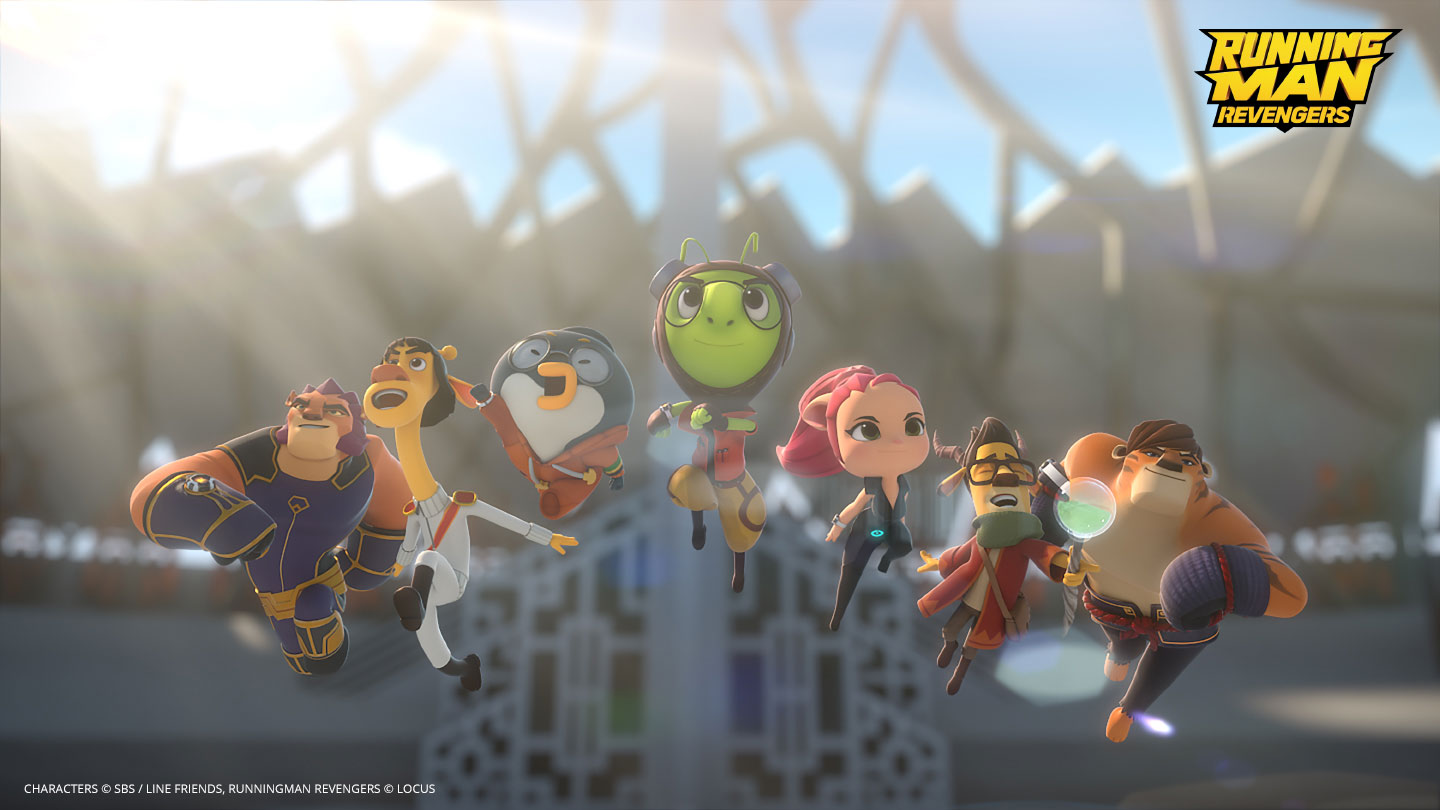
The original variety show is not as well known outside South Korea as in it. How will you ensure international distributors grasp the full appeal of the film?
The Running Man variety show is well known throughout Asia, having been on the air since 2010 with local adaptations in China, Vietnam, and the Philippines. That said, the animated show is fairly loosely based on the variety program, focusing on the racing aspect and challenges in order to create animated content with dynamic action and a fast pace. The characters were modeled after the original members of the variety show, which is appealing to those who are aware of the original series but does not affect those who are not.
In the production of Running Man: Revengers, we were consciously intent on creating a film which does not require prior knowledge of the variety show or tv series in order to be enjoyed.
Sidus Animation Studios is a fairly young studio. What are your main advantages in the global marketplace?
While Sidus Animation Studios is relatively new on the global animation scene, we feel that the entrance was a powerful one: Red Shoes and the Seven Dwarfs was the first film of its scale and reach, in terms of distribution, to be produced entirely from Korea.
Sidus Animation Studios is the animation branch of Locus Corporation, which has a solid reputation a long track record of over ten years in cgi and vfx. It was this technology and production know-how which made the production of Red Shoes and the Seven Dwarfs, as well as the participation of some of Korea’s top talent in the animation industry; key staff have worked on major global projects including Tangled (2010), The Croods (2013), Big Hero 6 (2014), The Nut Job (2014), Moana (2016), Trolls (2016), The Nut Job 2 (2017), and, of course, Red Shoes and the Seven Dwarfs (2019).
We have the additional advantage as a Korean studio: there is a rich popular culture in Korea, with many popular proprieties whose quality and appeal have been tested but, whether due to the language barrier or other reasons, have not been able to receive much attention outside of Korea – as is the case with [upcoming projects like] Toemarok and Yumi’s Cells.
Sidus Animation Studios seeks to share throughout the world these IPs, which are tried and true yet still largely unseen outside Korea, by adapting them into animation.

What has the performance of Red Shoes and the Seven Dwarfs overseas told you about the global market for animated features?
It’s very evident that the film industry is in a period of transition, as the rise of streaming platforms significantly affects theatrical releases and release windows overall. This was true even before the pandemic, but the pandemic has both underlined and accelerated these changes. Too often, however, the discussion is framed as “theaters versus platforms,” which can oversimplify the reality where recent market shifts have also provided additional opportunities, especially outside of tentpole franchises.
As the first feature from a studio, and as a film produced on an independent-level budget, Red Shoes and the Seven Dwarfs is a film for which it was quite difficult to secure theatrical distribution. Nonetheless, if a film is well made, there will always be distributors who will have an eye for it.
What certainly has also changed is that there seems to be increased flexibility in the release of films, where a day-and-date release is not the requirement it used to be. Nor is it as necessary to hold back all distribution of a film against the U.S. release. Our friends at Lionsgate have helped Red Shoes and the Seven Dwarfs meet a new audience while increasing opportunities for additional revenue on Apple TV — where the film reached the number one slot in the kids and family section — and other OTT platforms, despite earlier releases in other territories.
As the market continues to change, it will be increasingly important to factor distribution plans into production, such that the distribution strategy reflects the needs and possibilities of the evolving market, and that the production is budgeted in a manner appropriate to that project and strategy. It’s not enough to make films better: they also have to be made smarter. We hope to apply these lessons as we continue to produce animated feature films for a global audience.
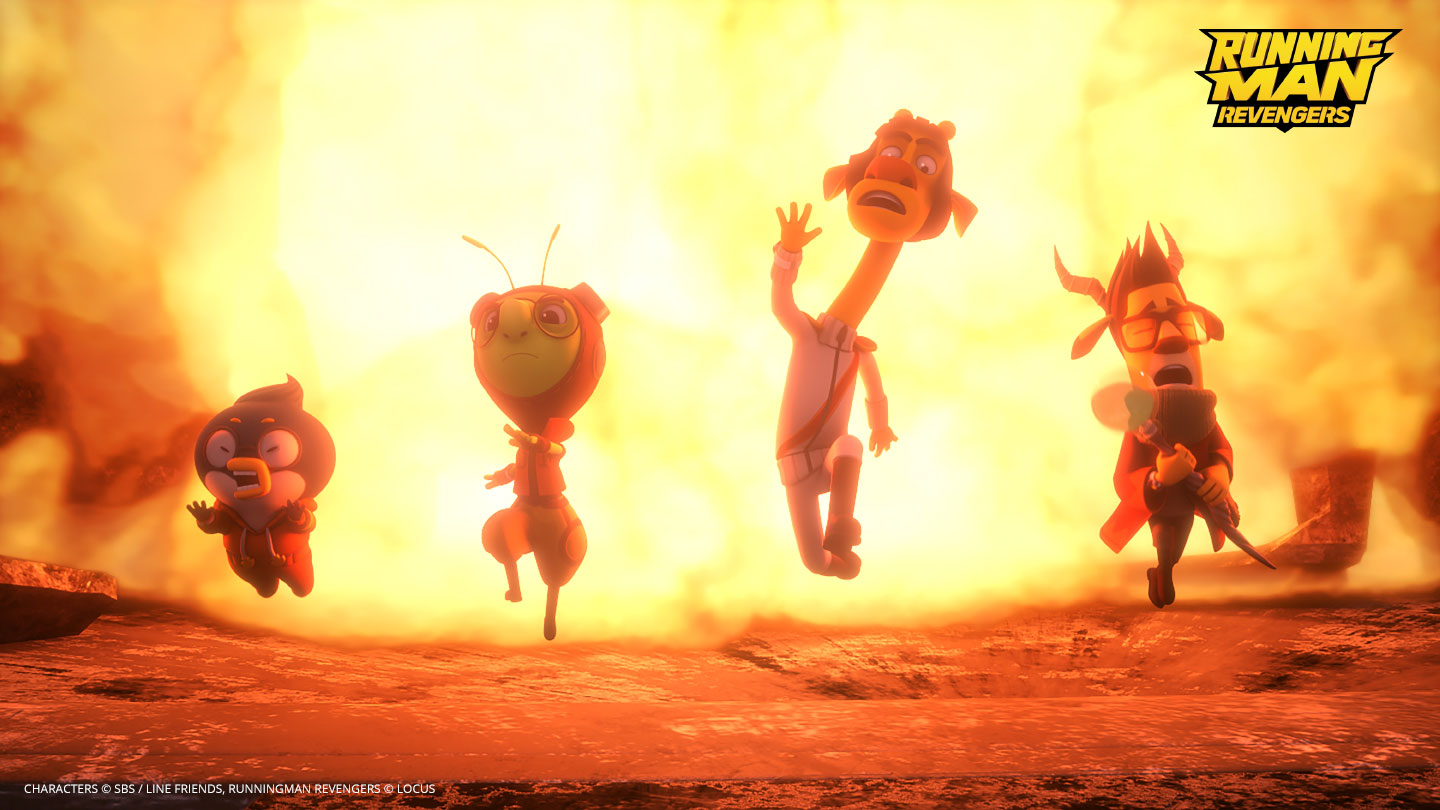
Your other upcoming projects, Toemarok and Yumi’s Cells, are also adaptations, but aimed at quite different demographics from Running Man. What is Sidus’s ethos — how do you choose your projects?
Sidus Animation Studios’ strategy is largely comprised of three cylinders. First is the production of feature films targeted for a global family audience, as with Red Shoes and the Seven Dwarfs. Then there is pre-school & kids’ animated contents, complete with an associated licensing business.
With Red Shoes and the Seven Dwarfs and similar upcoming projects, we want to create animated content which not only has popular appeal and is financially successful, but also conveys a valuable message that resonates with the audience. Our goal is not to beat anybody over the head with a given moral lesson, but to create an entertaining and emotional experience that is also meaningful.
Toemarok and Yumi’s Cells fall into the third category: animation geared towards older audiences (15+ and YA+, respectively). In Korea, there is unfortunately the stereotype that animation is for little kids only, and it is a stereotype we are actively trying to combat. While they do not have as much international recognition (another situation we are trying to rectify), both Toemarok and Yumi’s Cells are extremely popular and widely known IP.
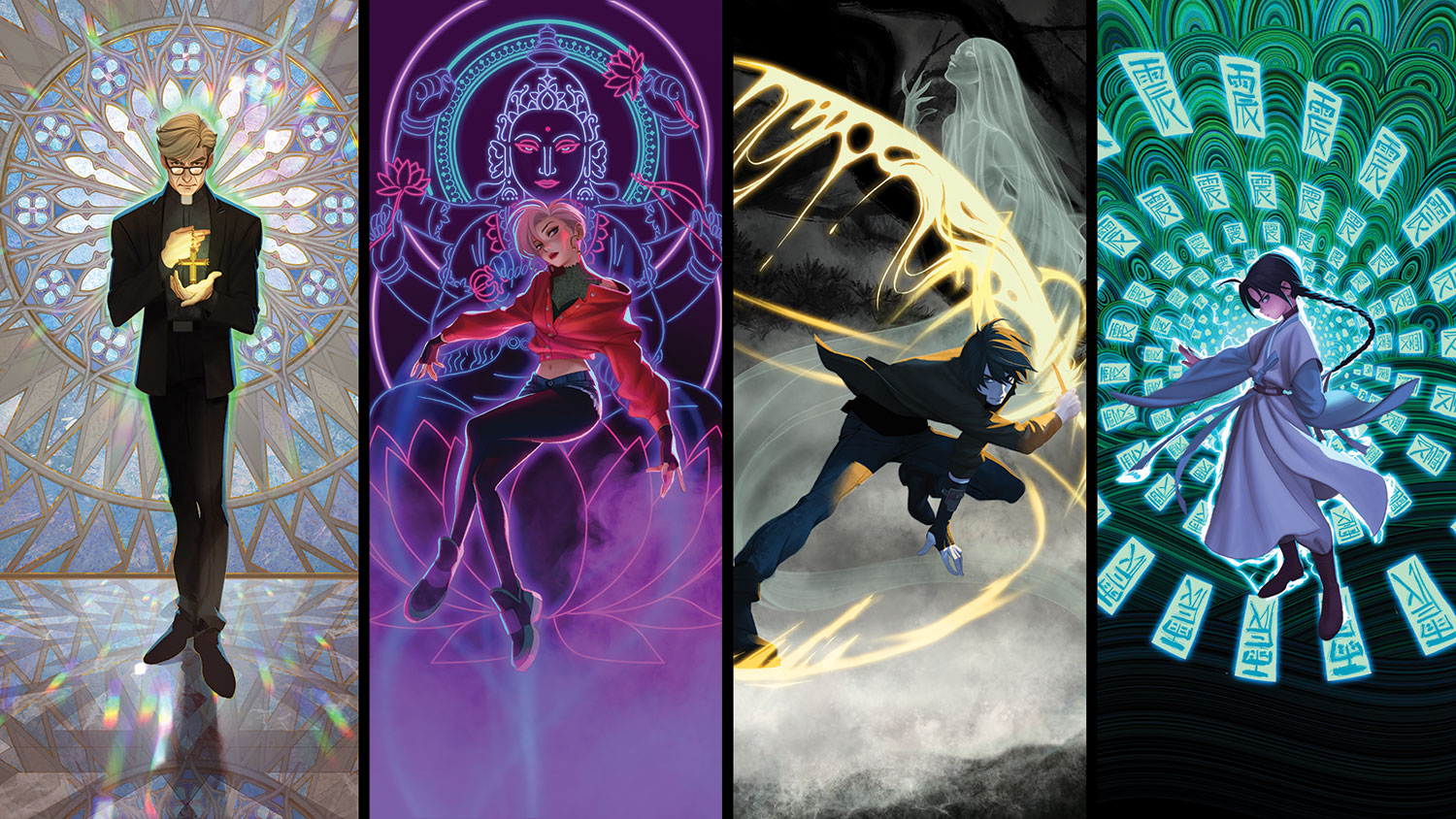
The Toemarok novels, which tell the urban adventure of four heroes with superpowers based on religion, myth, and legend, have sold more than ten million copies since debuting in 1994, and the characters and worldview still remain in the public consciousness, especially among fans of supernatural thrillers. These characters have not been brought to life in visual media, so by doing so in an animated series, we hope to introduce the original fans to adult animation, as well as pull in new audiences throughout Korea and the world.
We hope that Yumi’s Cells will also be able to expand animation to an adult audience, where the original webtoon — the story of a young everywoman whose thoughts are personified as characters in her mind — has consistently been number one in its time slot ever since its debut in 2015.
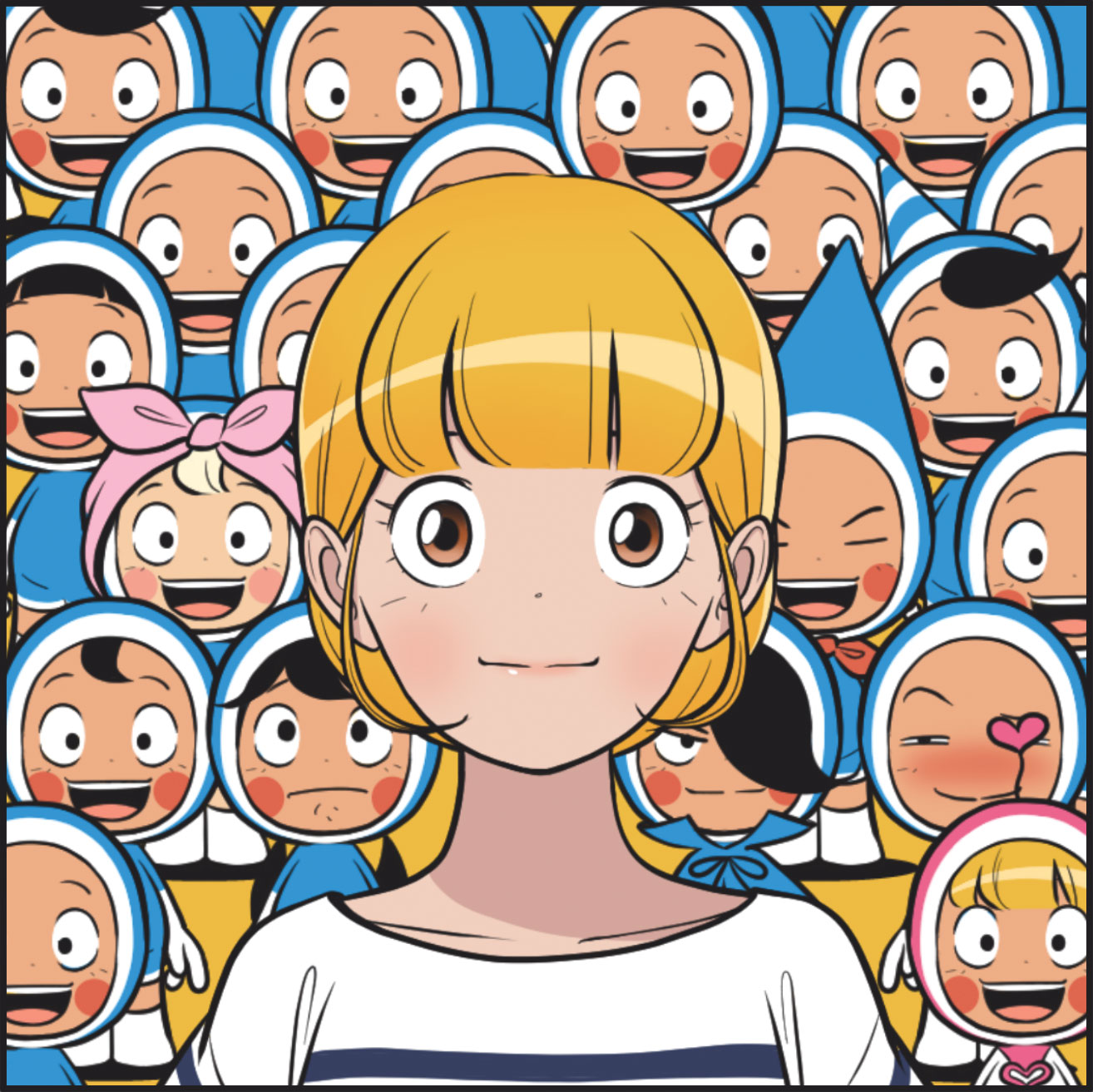
The success of Bong Joon-ho’s film Parasite, which won the Oscar for best picture earlier this year, has given Korean cinema new visibility. Do you think this will benefit you, even though your films and series target very different audiences?
Coincidentally, Sidus Pictures, Locus’s live-action film division, produced both Bong Joon-ho’s debut feature Barking Dogs Never Bite (2000) and his break-out hit Memories of Murder (2003). Parasite’s Oscar win was, in a way, the culmination of a process spearheaded by Bong of course, but also directors including Park Chan-wook, Kim Ji-woon, and Lee Chang-dong, among many others. The quality of Korean cinema is now recognized on an international scale.
Put more accurately: as seen in Parasite’s best picture win, these films are not being judged as “Korean films” in any explicit sense, but as good films in and of themselves, with their country of origin incidental. We hope to serve a similar role for the Korean animation industry as we produce animated content which can appeal to a global audience, and whose quality is at the forefront of the industry internationally.

.png)